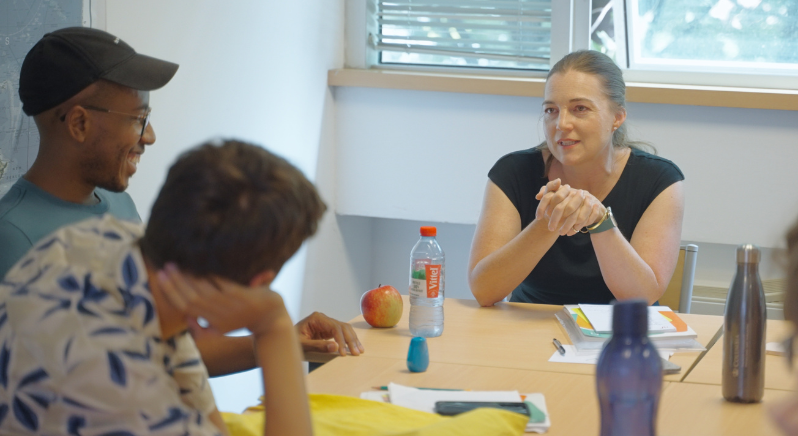While Standard French is the official and most widely spoken language in France, many regional dialects continue to shape the country’s linguistic landscape.
Some are closely related to French, while others are linguistically unrelated. Learn more about dialects spoken in France in this article.
Historical background
The shift toward a single national language began in 1539 with the Ordinance of Villers-Cotterêts, which established French as the official language of legal and administrative documents, replacing Latin.
A more decisive transformation occurred during the French Revolution, when French was promoted as a unifying tool for national identity. Revolutionary leaders viewed regional languages, often referred to as “patois”, as barriers to unity. In the 19th century, the rise of a centralized education system under Jules Ferry further accelerated this linguistic shift, making French the sole language of instruction in schools across the country.

Main dialects still spoken today
Several regional languages are still spoken in various parts of France today.
Basque
Spoken in the western Pyrenees in the French Basque Country (Pays Basque), Basque is a language isolate—unrelated to any known language, including French. With complex grammar and agglutinative structures, Basque is entirely distinct.
Breton
Breton is a Celtic language spoken in western Brittany. Closely related to Welsh and Cornish, Breton is markedly different from French in syntax, vocabulary, and pronunciation. Although its use declined rapidly during the 20th century, it is experiencing a revival thanks to educational and cultural initiatives.
Alsacien
Alsatian is spoken in the Alsace region, particularly around Strasbourg. It shares linguistic roots with Swiss German and Alemannic. While it includes some French vocabulary due to geographic proximity, its grammar and phonology remain Germanic.
Occitan
Occitan is spoken across much of southern France, from the Italian to the Spanish border. Occitan differs significantly in pronunciation, vocabulary, and verb conjugation. It includes several regional varieties such as Provençal and Gascon. Although closer to French than languages like Basque or Breton, Occitan retains a distinct identity and a rich literary history.
Corse
Spoken on the island of Corsica, Corsican is closely related to Tuscan Italian and bears many similarities to standard Italian. While it shares Latin roots with French, Corsican is linguistically closer to Italian in both grammar and vocabulary.
Examples of everyday words
To give a clearer sense of how distinct these regional languages can be, here are examples of simple everyday words in each language:
| Hello | Thank you | Please | See you | |
|---|---|---|---|---|
| Basque | Kaixo | Eskerrik asko | Mesedez | Gero arte |
| Breton | Demat | Trugarez | Mar plij | Kenavo |
| Alsatian | Guete Morge | Dankà | Bitte | Bis schpäter |
| Occitan | Adieu | Mercés | Se vos plai | A lèu |
| Corsican | Bonghjornu | Grazie | Per piacè | A dopu |

Preservation efforts
In recent decades, new education programs have been introduced in several regions, allowing children to learn local dialect. These efforts are particularly active in Brittany, Corsica, the Basque Country, and Occitania, where local languages are offered as part of the public school curriculum.
Although learning Spanish, Italian or German as a second language remains standard in many schools, an increasing number of students are choosing to study their local dialects as second or third language.
Learn French in France with Go! Go! France
At Go! Go! France, we specialize in helping international students prepare for and enjoy life in France. From choosing the right school to securing accommodation and navigating daily life, we’re here to guide you every step of the way.
Whether you’re looking for a short-term language course or a long-term program, our team is ready to help you.
Contact us with any questions and to begin your application.





